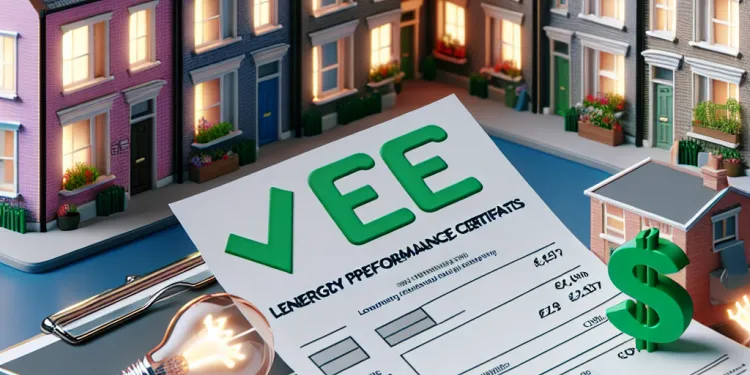
Find Help
More Items From Ergsy search
-
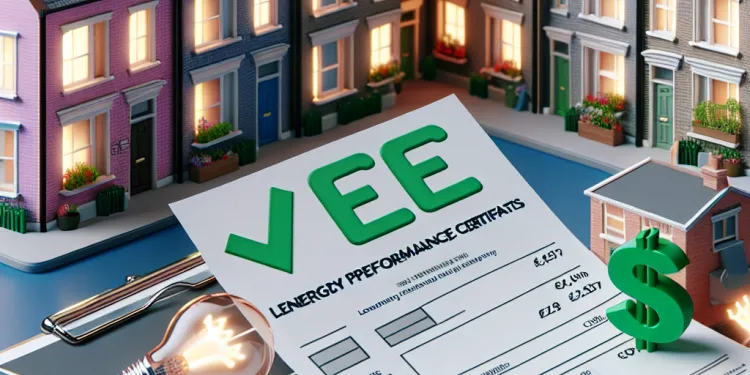
Are landlords required to provide energy performance certificates?
Relevance: 100%
-

Can my landlord evict me without providing a reason?
Relevance: 42%
-

How will the cuts impact landlords?
Relevance: 38%
-

What should I do if I receive an eviction notice from my landlord?
Relevance: 38%
-

Can I switch energy suppliers if I’m renting?
Relevance: 37%
-
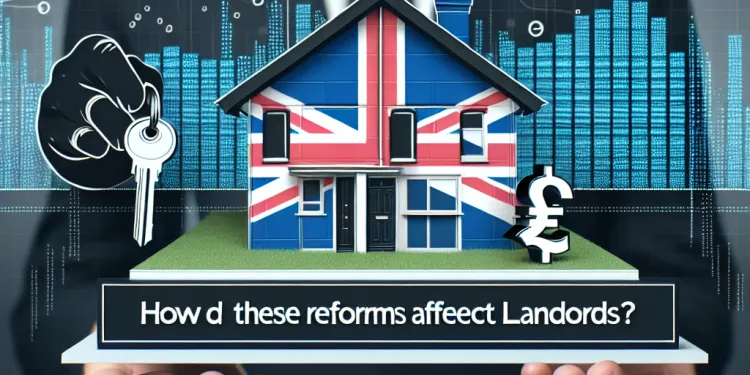
How do these reforms affect landlords?
Relevance: 37%
-

Do first aid certifications expire?
Relevance: 37%
-
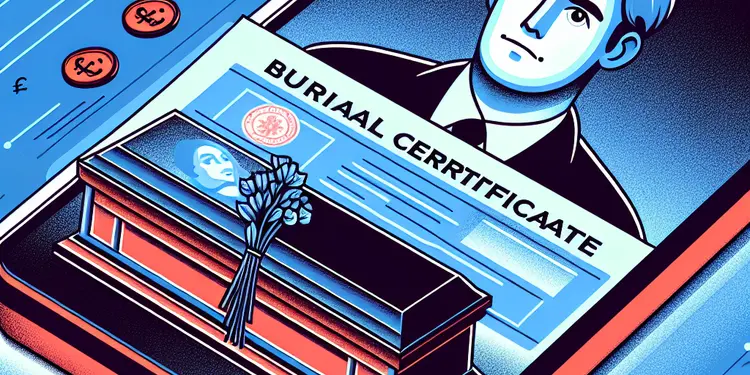
What is a burial certificate?
Relevance: 36%
-

Is certification necessary for primary care support workers?
Relevance: 35%
-
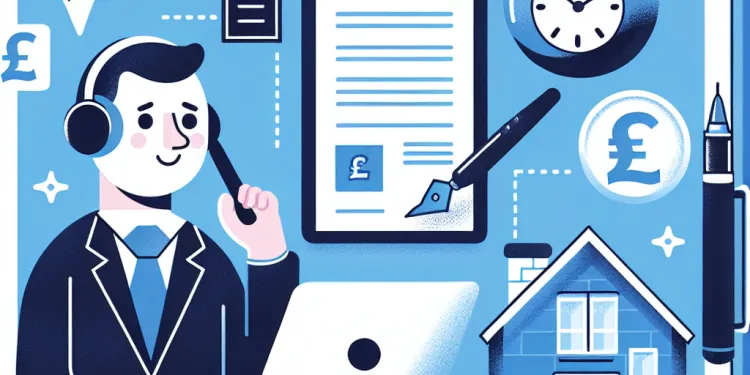
Can I negotiate with my landlord to avoid eviction?
Relevance: 33%
-
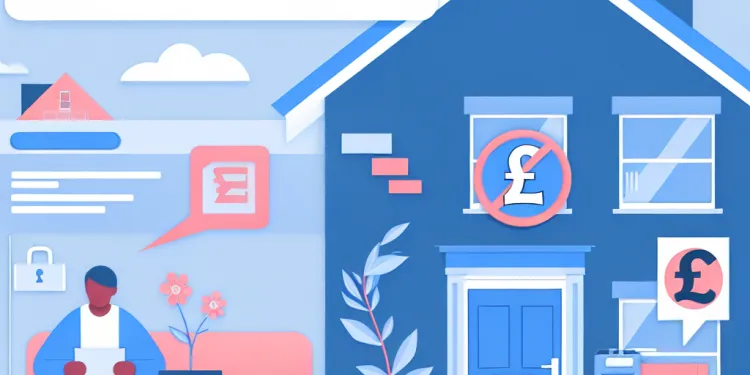
What can I do if my landlord wants to evict me?
Relevance: 33%
-

The new death certification process in the UK
Relevance: 33%
-
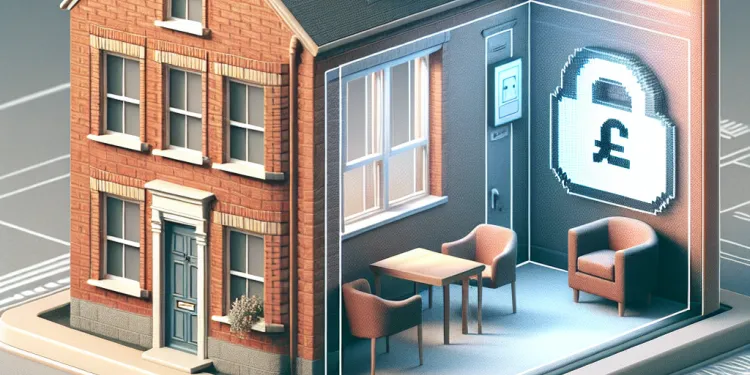
Can a landlord lock me out or remove my belongings to evict me?
Relevance: 32%
-

How are disputes between landlords and tenants handled?
Relevance: 32%
-

What is the best first aid certification to obtain?
Relevance: 32%
-
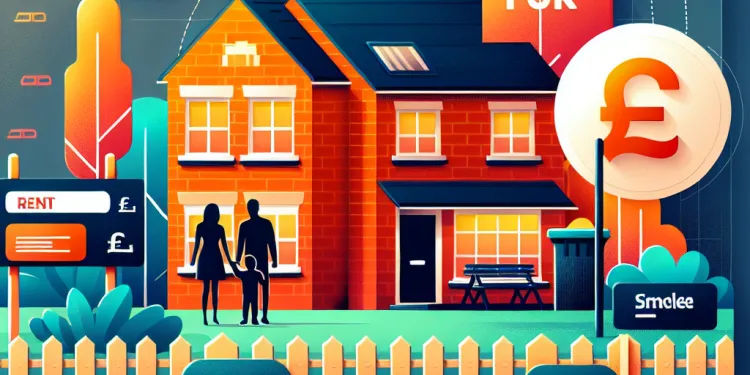
Can a landlord evict me for complaining about property conditions?
Relevance: 31%
-

Landlord Licensing Laws Under Review as Tenants Call for Stronger Protections
Relevance: 30%
-

How can I find out if an energy supplier is reputable?
Relevance: 30%
-

How does the energy price cap affect green energy tariffs?
Relevance: 28%
-

5 Broker Exclusive Buy to Let Mortgage Lenders you need to know about as a Landlord
Relevance: 28%
-

What role do renewable energy sources play in energy pricing?
Relevance: 26%
-

How does global energy demand affect UK energy prices?
Relevance: 26%
-

Does the energy price cap apply to all energy tariffs?
Relevance: 25%
-

Are energy prices regulated in the UK?
Relevance: 25%
-

How does the energy price cap affect my energy bills?
Relevance: 25%
-

How do renewable energy plans affect my choice of supplier?
Relevance: 25%
-

Will my energy supply be interrupted if I switch suppliers?
Relevance: 25%
-
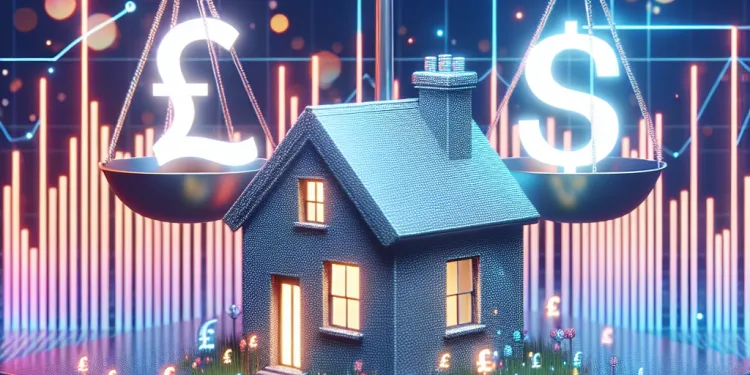
What are the new Tenancy Law Reforms in the UK in 2025?
Relevance: 25%
-

Who is eligible for Ofgem compensation with Octopus Energy?
Relevance: 25%
-

What is the energy price cap?
Relevance: 24%
-

What is the Energy Price Cap in the UK?
Relevance: 24%
-

What is the UK's energy price cap?
Relevance: 24%
-

Can caffeine pouches help with energy?
Relevance: 24%
-
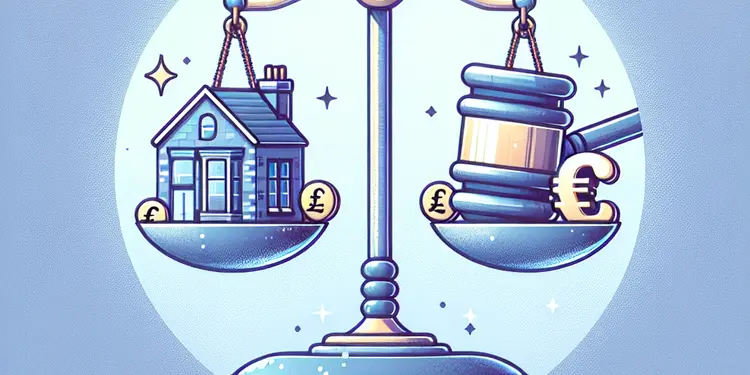
What is specific performance in property litigation?
Relevance: 24%
-

How is performance measured in Hyrox?
Relevance: 24%
-

What is Ofgem Compensation related to Octopus Energy?
Relevance: 24%
-

How often can I switch energy suppliers?
Relevance: 23%
-

Why was the energy price cap introduced?
Relevance: 23%
-

How can I choose the right energy supplier?
Relevance: 23%
-

How can I perform a testicular self-exam?
Relevance: 23%
Understanding Energy Performance Certificates (EPCs) in the UK
In the UK, Energy Performance Certificates (EPCs) play a crucial role in the housing market, providing information about a property's energy efficiency. EPCs rate the energy efficiency of a property on a scale from A (most efficient) to G (least efficient) and are a legal requirement for landlords in many situations.
Landlord Obligations for EPCs
Landlords are required to provide an EPC when they rent out a property. The certificate must be available to potential tenants when they are viewing the property and must be handed over when a new tenant moves in. It is important to note that this requirement applies whether the property is let as a whole or in individual units.
The certificate is valid for 10 years, and landlords must ensure that the EPC is up-to-date and reflects any changes or improvements made to the property that could affect its energy efficiency rating.
Minimum Energy Efficiency Standards (MEES)
Since April 2018, the Minimum Energy Efficiency Standards (MEES) have been in place, making it unlawful for landlords to grant a new tenancy for properties with an energy efficiency rating of F or G, the two lowest ratings. As of April 2020, this regulation was extended to apply to all existing tenancies as well.
Landlords with properties that do not meet the minimum E rating must make the necessary improvements to increase their property’s energy efficiency before they can rent it out legally.
Exceptions and Exemptions
There are some exceptions to these requirements. Properties that are listed buildings or those located in conservation areas may be exempt if improvements to meet EPC requirements would unacceptably alter the character or appearance of the property. Additionally, if a landlord has carried out all possible energy efficiency improvements but the property still does not meet a minimum E rating, they may be eligible for an exemption, but this must be registered in the PRS Exemptions Register.
Consequences of Non-Compliance
Failure to provide an EPC, or letting a property that does not meet the MEES, can result in significant fines for landlords. These fines can reach up to £5,000 per property, and a prohibition on renting out the property until it complies. Therefore, it is crucial for landlords to ensure they possess a valid EPC at the beginning of each tenancy and to adhere strictly to MEES guidelines.
In summary, landlords in the UK are legally obligated to provide an EPC when letting a property and to ensure it meets the minimum energy efficiency standards to avoid penalties and potential legal issues.
Understanding Energy Performance Certificates (EPCs) in the UK
In the UK, an Energy Performance Certificate (EPC) is an important document for houses. It tells you how energy efficient a property is. The EPC gives a rating from A (very good) to G (not good). Landlords must have this certificate for their houses in many cases.
Landlord Obligations for EPCs
Landlords must give an EPC when they rent out their property. They should show it to people interested in renting and give a copy to new tenants when they move in. This rule is the same for a whole house or just a part of it.
An EPC lasts for 10 years. Landlords must keep it up-to-date, especially if they make changes that improve energy efficiency.
Minimum Energy Efficiency Standards (MEES)
Since April 2018, there are rules called Minimum Energy Efficiency Standards (MEES). These rules say landlords cannot rent out places with an energy rating of F or G (the two lowest ratings). Since April 2020, this rule also applies to homes already rented out.
If a property has an F or G rating, landlords must improve it to at least an E before renting it out.
Exceptions and Exemptions
Some properties might not need to follow these rules. If a property is a listed building or in a special area, changing it might not be allowed. The landlord might not need to meet the EPC goals if it would change the property's looks too much. Also, if a landlord has made all possible improvements but still can’t meet an E rating, they can ask for an exemption. This must be logged in a special register called the PRS Exemptions Register.
Consequences of Non-Compliance
If landlords do not provide an EPC or rent out a place without meeting the MEES, they can be fined. Fines can be up to £5,000 for each property. Also, they cannot rent out the property until it meets the rules. So, landlords must always have a valid EPC when renting and follow the MEES guidelines strictly.
To sum up, landlords in the UK must have an EPC to rent their property. They must also follow the minimum energy efficiency rules to avoid fines and legal trouble.
Frequently Asked Questions
What is an Energy Performance Certificate (EPC)?
An Energy Performance Certificate (EPC) provides information about the energy efficiency of a property, rating it on a scale from A (most efficient) to G (least efficient).
Are landlords legally required to provide an EPC?
Yes, landlords are legally required to provide an EPC to prospective tenants before renting out a property.
When must an EPC be provided to tenants?
An EPC must be provided to potential tenants at the earliest opportunity, typically before they enter into a rental agreement.
How long is an EPC valid for?
An EPC is valid for 10 years from the date it was issued.
What happens if a landlord does not provide an EPC?
Failure to provide an EPC can result in penalties, including fines, for the landlord.
Who is responsible for obtaining the EPC?
It is the landlord's responsibility to obtain the EPC before renting out the property.
Do all rental properties need an EPC?
Yes, all rental properties require an EPC, with limited exceptions for certain types of property.
How is the energy efficiency of a property determined?
The energy efficiency of a property is assessed by a qualified energy assessor who evaluates the property's construction, heating systems, lighting, and other factors affecting energy use.
Are there any exemptions to the EPC requirement?
Certain properties, such as some listed buildings, may be exempt from the EPC requirement if specific conditions are met.
Can tenants request a new EPC?
Tenants can request to see a valid EPC, but landlords are typically required to provide it without the tenant needing to ask.
Does an EPC affect a landlord's ability to rent out a property?
Landlords must meet minimum energy efficiency standards to legally rent out a property, as indicated by the EPC rating.
What is the minimum EPC rating required to rent out a property?
As of current regulations, the minimum EPC rating required to legally rent out a property is E.
Is there a cost associated with obtaining an EPC?
Yes, obtaining an EPC involves a cost, which typically depends on the size and type of the property.
How can a landlord improve a property's EPC rating?
Landlords can improve a property's EPC rating by upgrading insulation, installing more efficient windows, updating heating systems, and using energy-efficient lighting.
Where can tenants find the EPC for a specific property?
Tenants can request the EPC from the landlord or find it in the national EPC register if it's been made publicly available.
Is it mandatory for landlords to upgrade properties with a poor EPC rating?
Landlords are required to ensure properties meet the minimum EPC rating regulation to continue to rent them legally.
Do properties rented out before the EPC regulation need one now?
Yes, all properties that are rented out must have an EPC regardless of when they were first rented.
What documentation accompanies an EPC?
An EPC includes a recommendation report that outlines ways to improve the property's energy efficiency.
Can EPCs impact property value?
Yes, a higher EPC rating can enhance property value by improving energy efficiency and reducing utility costs for tenants.
Are renewed or updated EPCs necessary if changes are made to the property?
If significant energy efficiency improvements are made, a renewed EPC might be beneficial to reflect these changes, though not necessarily required unless the existing certificate expires.
What is an Energy Performance Certificate (EPC)?
An Energy Performance Certificate, or EPC, is a piece of paper that tells you how much energy a building uses. It also tells you how you can save energy.
EPCs are important when you are buying or renting a home. They help you know if the home will be warm and if you will have to pay a lot for heating.
There are some tools that can help you understand an EPC better. You can ask someone to explain it to you. You can also use apps or websites that make reading easier.
An Energy Performance Certificate, or EPC, shows how good a building is at saving energy. It uses letters to show this: A is the best, G is the worst.
Do landlords have to give an EPC by law?
A landlord is a person who rents out a home. An EPC is a paper that shows how much energy a home uses. It also tells how to save energy. By law, landlords must give an EPC to new renters before they move in. This helps renters know how much it might cost to heat the home.
If you need help reading:
- Ask someone you trust to explain it.
- Use tools that read text out loud.
- Look for videos that explain EPCs.
Yes, landlords must give EPCs to people who want to rent before they rent a place.
When do renters need to get an EPC?
You should give an EPC to people who might want to rent your place. Do this as soon as you can, usually before they sign any papers to rent.
How long does an EPC last?
An EPC is a paper that shows how much energy a building uses.
An EPC lasts for 10 years.
If you get a new EPC before 10 years, use the new one.
If you are not sure, you can ask someone for help.
An EPC is a paper that shows how much energy a building uses. It stays good for 10 years from the day it's given out.
What if a landlord does not give an EPC?
A landlord must give an EPC to people who want to rent. An EPC is a paper that shows how much energy a house uses.
If the landlord does not give you an EPC, they might be breaking the rules.
If you don’t get an EPC, you can:
- Ask your landlord nicely for it.
- Talk to someone who helps with housing issues.
- Get advice from a service that helps renters.
If the landlord doesn’t have an EPC, they might have to pay money as a penalty.
Who needs to get the EPC?
The landlord must get the EPC before they rent out the home.
Do all homes you rent need an EPC?
Yes, all places for rent need an EPC. But some special kinds of places might not need one.
How do we know if a building uses energy well?
A trained energy assessor checks how much energy a building uses. They look at how the building is made, the heating systems, the lights, and other things that use energy.
Are there any times when you don't need an EPC?
Some buildings, like certain old or special ones, might not need an EPC if they meet certain rules.
Can people renting a home ask for a new energy report?
Are you renting a home? You might want to know how much energy it uses. This is in a report called an "Energy Performance Certificate" (EPC). If the EPC is very old, you can ask for a new one.
If you need help understanding this, you can:
- Ask someone you trust to explain it to you.
- Use a simple app on your phone to read it out loud.
- Talk to your landlord or the people you rent from. They can help you get a new EPC.
If you are renting a home, you can ask to see an Energy Performance Certificate (EPC). But, your landlord usually should give it to you without you needing to ask.
Tip: If reading is hard, try using apps that read text out loud. Friends or family can also help you understand the information.
Can an EPC change if a landlord can rent out their home?
An EPC is a paper that says how good a home is at saving energy. It's like a report card for energy use.
If a home has a low score on the EPC, it means it uses a lot of energy. This can make it harder for a landlord to rent it out. Landlords might need to make changes to save energy, like adding better windows or fixing things to keep the home warm.
People can use tools like pictures or videos to better understand how EPCs work. They can also ask someone for help if it's confusing.
Landlords must make sure their homes use energy well enough before they can rent them out. This is shown by the home's EPC rating, which tells how much energy a home uses.
What is the lowest EPC rating to rent a home?
To rent a home, the EPC rating must be at least an E.
- EPC stands for Energy Performance Certificate.
- This shows how much energy the home uses.
You can use tools like a dictionary to understand new words.
Right now, if you want to rent out a house or flat, it needs to have at least an E rating on its EPC.
Do you have to pay for an EPC?
Getting an EPC costs money. The price can change based on how big your home is and what kind of home you have.
How can a landlord make a property's EPC better?
A landlord can make a home use less energy. This helps to get a better EPC rating.
Here are some easy ways to do this:
- Add better insulation. This keeps warmth in the house.
- Use energy-saving light bulbs. They use less power.
- Get a more efficient boiler. It helps to heat the home better.
- Check for drafts. Stop cold air from getting in.
- Install solar panels. They make their own energy from the sun.
It might also help to talk to an expert about more ways to save energy.
Landlords can make a property better by doing a few things. They can add better insulation, put in new windows that save energy, change the heating system, and use lights that don't use a lot of energy.
If you need help reading, you can use tools like a screen reader. A dictionary can also help you understand new words.
Where can renters find the EPC for a home?
If you rent a home, you can find the EPC. EPC stands for Energy Performance Certificate. It shows how much energy the home uses.
Here are some ways to find it:
- Ask the landlord or person you rent from. They should have a copy.
- Look online on the EPC register. It is a website where you can search for EPCs.
- Check the documents you got when you moved in. The EPC might be there.
If you have trouble, ask someone to help you. You can also use tools that read aloud or help with reading.
If you rent a home, you can ask the landlord for the EPC. You can also look for it online if it is shared with everyone.
Do landlords have to fix homes with bad energy ratings?
Landlords own many homes and buildings. Some homes are not very energy efficient, which means they use too much energy. We check this with something called an Energy Performance Certificate (EPC). An EPC tells you if a home saves energy or wastes it.
If a home has a bad EPC, landlords might need to make it better. This can mean making changes to save energy, like adding better windows or insulation. It's good to talk to someone if you're unsure. There are tools online to help understand EPCs better.
Landlords must make sure their houses or flats have a certain energy rating. This is needed to keep renting them the right way.
Do old rental homes need an energy paper now?
Yes, all homes that are rented need an EPC. This is true no matter when they were first rented out.
Helpful Tips:
- Use pictures or videos to explain more if needed.
- Ask someone for help if the words are hard to understand.
What papers come with an EPC?
An EPC is a paper that shows how much energy a building uses. When you get an EPC, you also get some other papers. These papers help you understand the EPC better.
To make it easier to understand these papers, you can:
- Use bright markers to highlight important parts.
- Ask someone to read it with you.
- Use apps that read text out loud.
An EPC comes with a report. This report gives ideas on how to use less energy in the building. Using less energy is good for the earth and can save money.
Tools and techniques that could help:
- Use bright pictures or icons to show each idea.
- Give step-by-step guides with simple words.
- Ask a friend or helper to explain any hard parts.
Do EPCs change what a house is worth?
Yes, a better EPC rating can make a home worth more money. This is because it uses less energy, which saves tenants money on bills.
Do you need a new EPC if you change your home?
If you change your home, like adding a new room or getting new windows, you might need a new EPC.
EPC stands for Energy Performance Certificate. It shows how much energy your home uses. If you make big changes, your EPC may need to be updated.
Here are some tips to help:
- Ask an expert if you need a new EPC.
- Check the rules online or ask for help if you are unsure.
If you make big changes to save energy in your home, getting a new EPC (Energy Performance Certificate) can be helpful. It shows the changes you made. But you don't have to get a new one until the old one runs out.
Using pictures and colors can help you understand this better. You can also ask someone to read it with you if you need some help.
Useful Links
This website offers general information and is not a substitute for professional advice.
Always seek guidance from qualified professionals.
If you have any medical concerns or need urgent help, contact a healthcare professional or emergency services immediately.
Some of this content was generated with AI assistance. We’ve done our best to keep it accurate, helpful, and human-friendly.
- Ergsy carfully checks the information in the videos we provide here.
- Videos shown by Youtube after a video has completed, have NOT been reviewed by ERGSY.
- To view, click the arrow in centre of video.
- Most of the videos you find here will have subtitles and/or closed captions available.
- You may need to turn these on, and choose your preferred language.
- Go to the video you'd like to watch.
- If closed captions (CC) are available, settings will be visible on the bottom right of the video player.
- To turn on Captions, click settings .
- To turn off Captions, click settings again.
More Items From Ergsy search
-

Are landlords required to provide energy performance certificates?
Relevance: 100%
-

Can my landlord evict me without providing a reason?
Relevance: 42%
-

How will the cuts impact landlords?
Relevance: 38%
-

What should I do if I receive an eviction notice from my landlord?
Relevance: 38%
-

Can I switch energy suppliers if I’m renting?
Relevance: 37%
-

How do these reforms affect landlords?
Relevance: 37%
-

Do first aid certifications expire?
Relevance: 37%
-

What is a burial certificate?
Relevance: 36%
-

Is certification necessary for primary care support workers?
Relevance: 35%
-

Can I negotiate with my landlord to avoid eviction?
Relevance: 33%
-

What can I do if my landlord wants to evict me?
Relevance: 33%
-

The new death certification process in the UK
Relevance: 33%
-

Can a landlord lock me out or remove my belongings to evict me?
Relevance: 32%
-

How are disputes between landlords and tenants handled?
Relevance: 32%
-

What is the best first aid certification to obtain?
Relevance: 32%
-

Can a landlord evict me for complaining about property conditions?
Relevance: 31%
-

Landlord Licensing Laws Under Review as Tenants Call for Stronger Protections
Relevance: 30%
-

How can I find out if an energy supplier is reputable?
Relevance: 30%
-

How does the energy price cap affect green energy tariffs?
Relevance: 28%
-

5 Broker Exclusive Buy to Let Mortgage Lenders you need to know about as a Landlord
Relevance: 28%
-

What role do renewable energy sources play in energy pricing?
Relevance: 26%
-

How does global energy demand affect UK energy prices?
Relevance: 26%
-

Does the energy price cap apply to all energy tariffs?
Relevance: 25%
-

Are energy prices regulated in the UK?
Relevance: 25%
-

How does the energy price cap affect my energy bills?
Relevance: 25%
-

How do renewable energy plans affect my choice of supplier?
Relevance: 25%
-

Will my energy supply be interrupted if I switch suppliers?
Relevance: 25%
-

What are the new Tenancy Law Reforms in the UK in 2025?
Relevance: 25%
-

Who is eligible for Ofgem compensation with Octopus Energy?
Relevance: 25%
-

What is the energy price cap?
Relevance: 24%
-

What is the Energy Price Cap in the UK?
Relevance: 24%
-

What is the UK's energy price cap?
Relevance: 24%
-

Can caffeine pouches help with energy?
Relevance: 24%
-

What is specific performance in property litigation?
Relevance: 24%
-

How is performance measured in Hyrox?
Relevance: 24%
-

What is Ofgem Compensation related to Octopus Energy?
Relevance: 24%
-

How often can I switch energy suppliers?
Relevance: 23%
-

Why was the energy price cap introduced?
Relevance: 23%
-

How can I choose the right energy supplier?
Relevance: 23%
-

How can I perform a testicular self-exam?
Relevance: 23%


